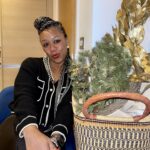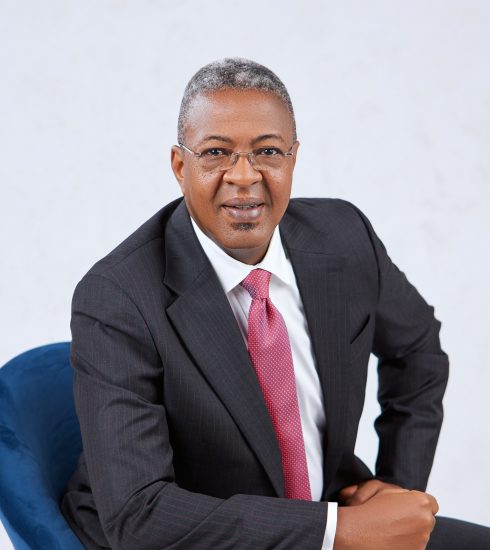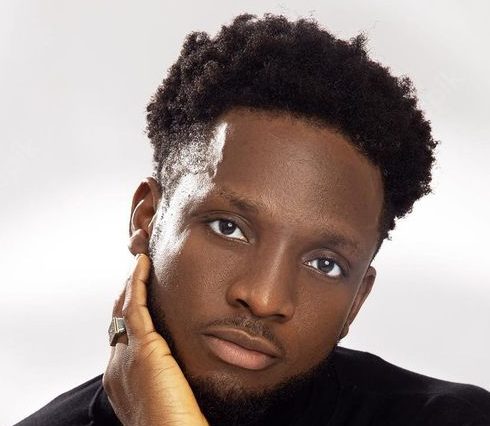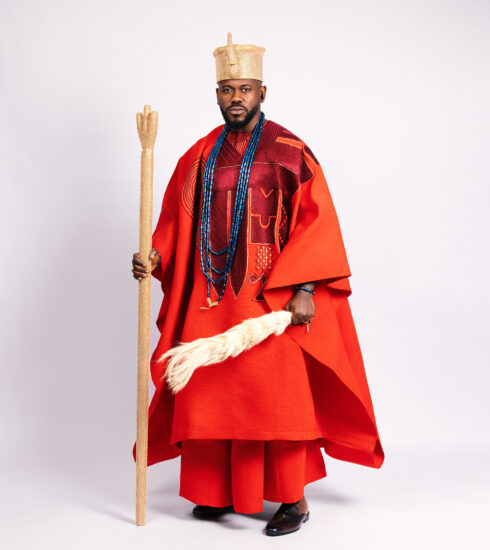Arese Ugwu: Empowering African Women Through Finance
International Women’s Day, observed on March 8th every year, serves as a reminder of the advancements and the ongoing efforts to achieve gender equality. This year’s theme, Accelerate Action, emphasises how urgent it is to remove structural obstacles that prevent women from advancing. Women around the world are taking a stance, advocating for equal rights, elevating one another’s voices, and bringing about change. These women are actively establishing environments where other women can flourish, taking on leadership roles, building lasting legacies, and fighting for equality.
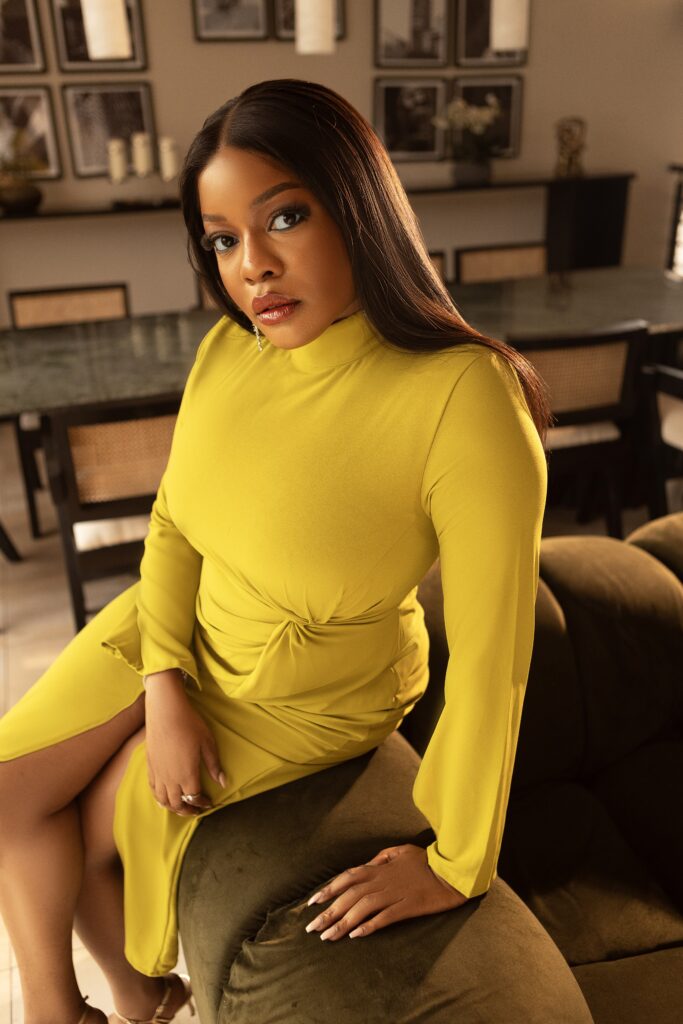
Arese Ugwu, an author, businesswoman, and advocate of financial literacy, is one of these exceptional women changing how African women think about money. Through realistic storytelling, her best-selling book, The Smart Money Woman, examines the financial challenges faced by contemporary African women. Arese did not stop at the pages of her book. She turned her book into a popular TV series that is currently in its second season.
In this interview with THEWILL DOWNTOWN’s Executive Editor, Onah Nwachukwu, Arese Ugwu discusses her passion for women’s empowerment, the inspiration behind her groundbreaking work, and how financial literacy can change the lives of African women.
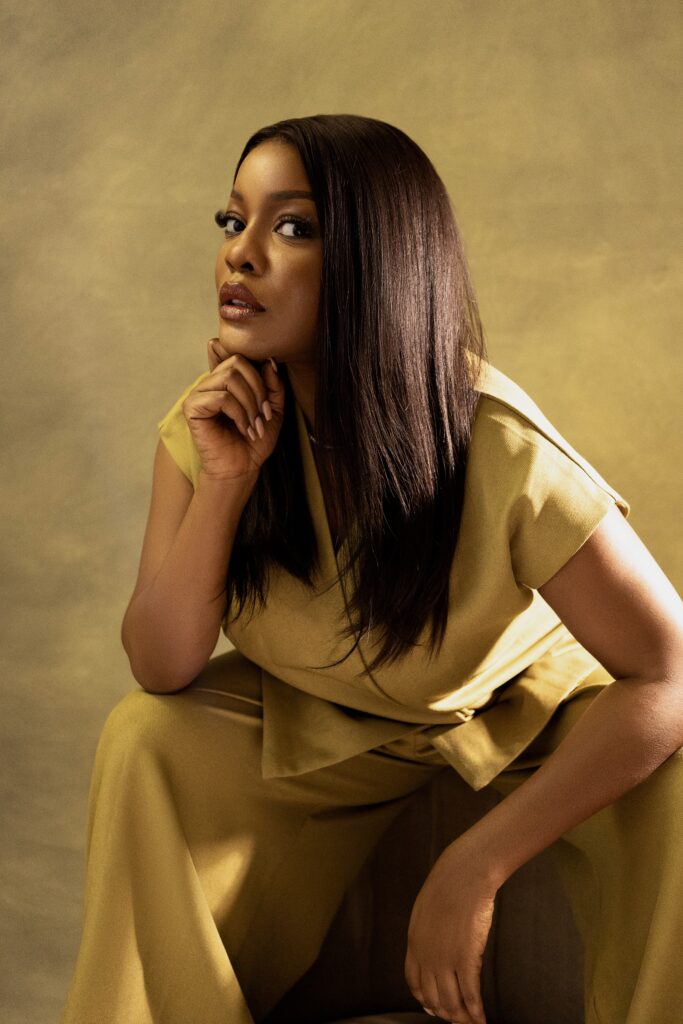
What inspired you to write The Smart Money Woman, and did you imagine it would resonate so deeply with readers across Africa?
Storytelling is a very powerful tool for learning, for shaping culture and changing perspectives. I ultimately wanted to create something that spoke to the more complicated aspects of being a modern African woman, and in the centre of that was our finances and how we navigated financial decisions in love, in family and in friendships. If I’m honest, I wanted it to make an impact but my mind could never fathom the impact it would have across Africa.
What feedback have you received from readers about how the book has impacted their financial decisions?
I self-published the book in 2016, but to this day, I get DMs and emails from women all over the world telling me how the book and TV show inspired them to make changes in their financial lives, whether it’s starting to build a stock portfolio, buying their first piece of land, or getting a handle on their budgets. Seeing people so invested in the stories and characters you created is humbling and fulfilling.
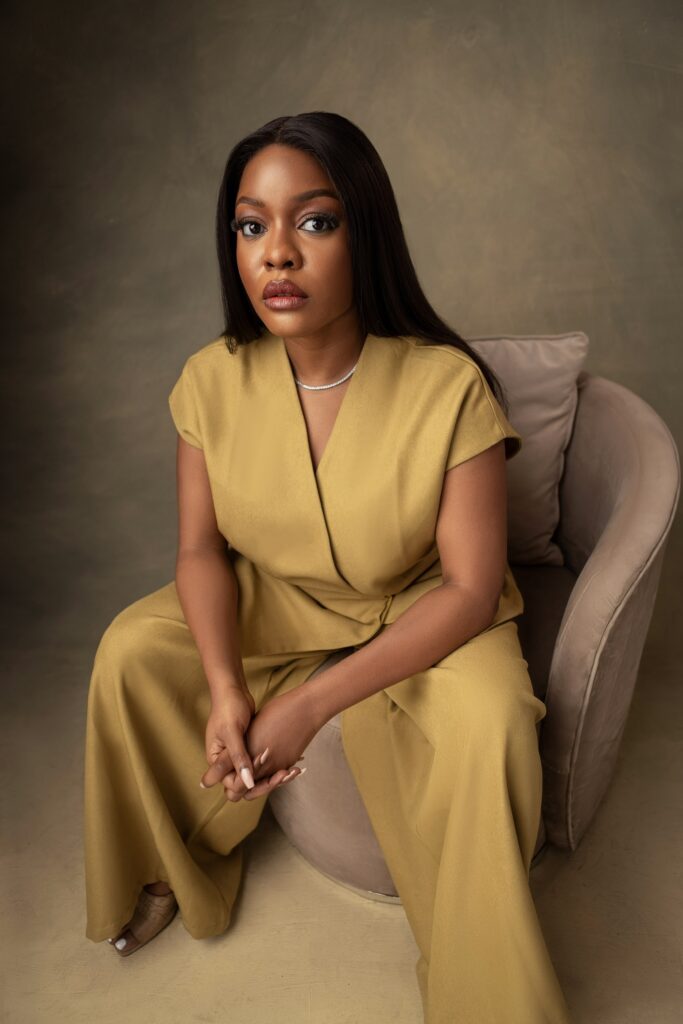
Can you share one key lesson from The Smart Money Woman that you think every young African woman should know?
I think the key lesson is about self-awareness, knowing yourself enough to know what your value is, what skills you can leverage to take advantage of opportunities, not being pressured into doing things your income can’t support because of societal pressures, and generally not compromising long-term success for short-term validation.
What motivated you to adapt the book into a Netflix series, and how did you find the process of transitioning from author to producer?
I mostly followed the audience’s feedback during a Pan-African book tour that took me from Kenya to Mozambique. And women everywhere kept saying, “I could totally see this book as a movie… I keep imagining it as a film.” So naturally, I began to do some research into what it would take to make that happen and what business model would be most profitable. We went on to create a TV series that went on African Magic, Netflix and YouTube. It’s been a gruelling journey, but I’m so grateful for all the learning I have gained through the process. I’ve taught myself to write scripts and learned on the job to be a producer, and this year, I’ve directed two projects I’m super excited about.
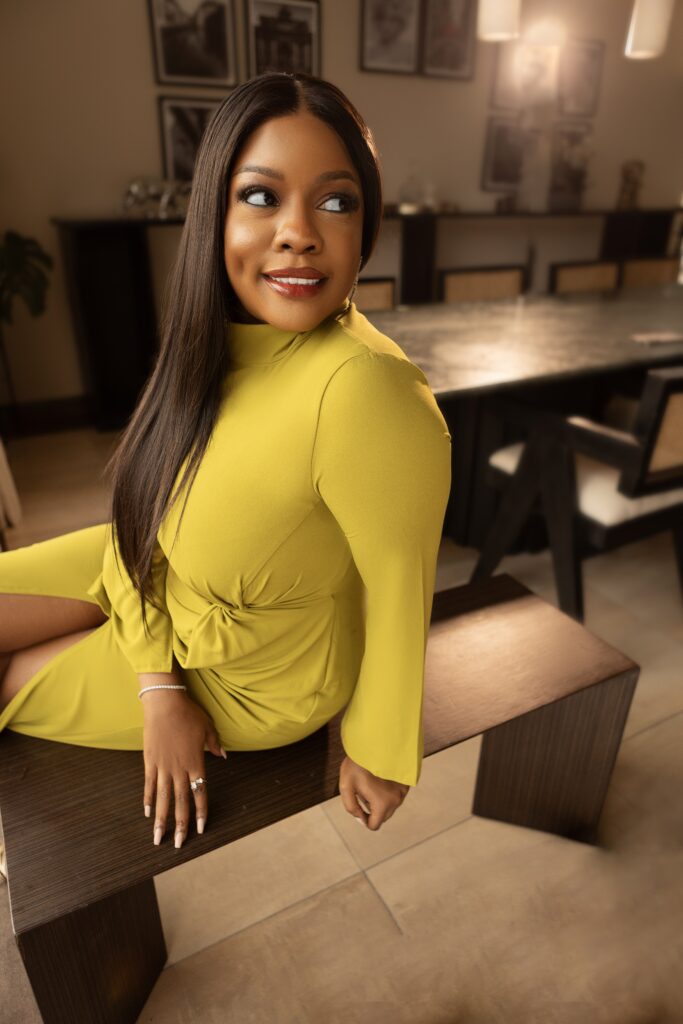
What inspired you to start the Smart Money Tribe Podcast, and what unique perspectives do you bring to the platform?
I wanted to create a platform that not just interviewed Nigerian business leaders about their journeys but also delved into their business and personal finance decisions. A conduit for learning for women like me who were extremely interested in topics like this and like to learn from other people’s experiences.
How do you decide on the topics and guests for each episode?
It’s mostly current affairs, with topics that are pertinent at the time and guests who I think have interesting stories.
What do you think sets your podcast apart in the crowded world of personal finance content?
I think my content generally stands out because of its authenticity. People love stories they can either see themselves in or aspire to and my content is always very specific to the challenges of the modern African woman.
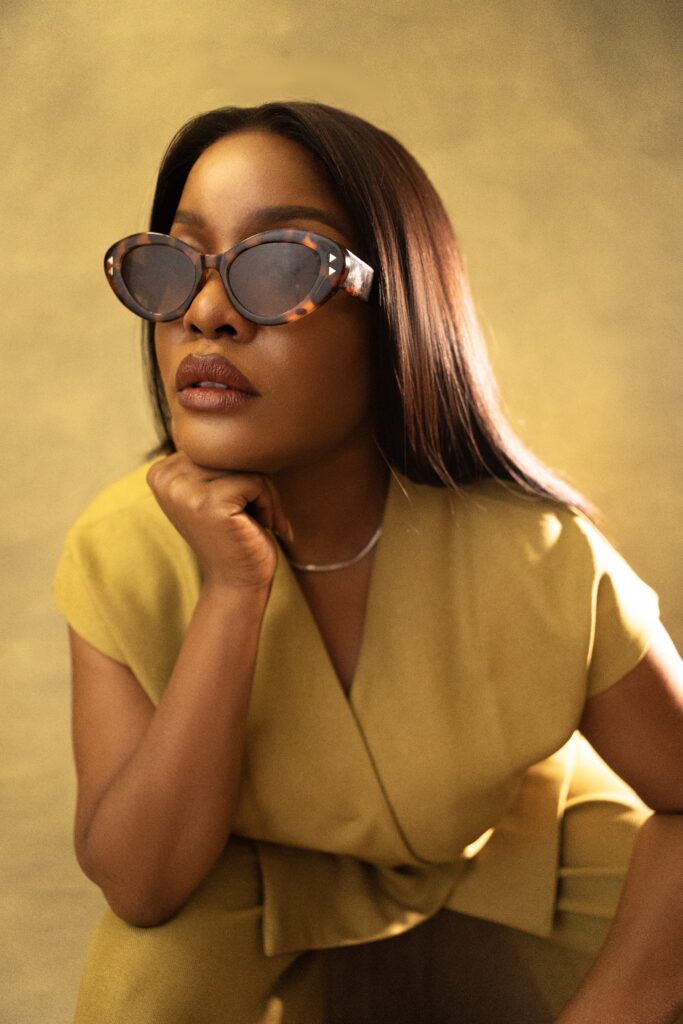
How does season 2 of The Smart Money Woman Series differ from the first season, and what new themes are you exploring?
The goal for season 2 was to be bigger and better. I think it had more scale because we shot in three cities. Lagos, Johannesburg and Cape Town. The themes this season were mostly around women getting money together and how, despite our individual struggles, we can leverage each other’s strengths for economic empowerment. There are other themes around religion, financial abuse, collective investing and the pros and cons of that, raising capital in spaces that were created for men to dominate and much more.
What were some of the challenges you faced in bringing season 2 to life, especially with the added depth of the characters’ stories?
The major challenge was that my vision was bigger than my budget, and I was attempting to do something on a scale for which I had limited resources. Bringing this project to life was definitely an adventure.
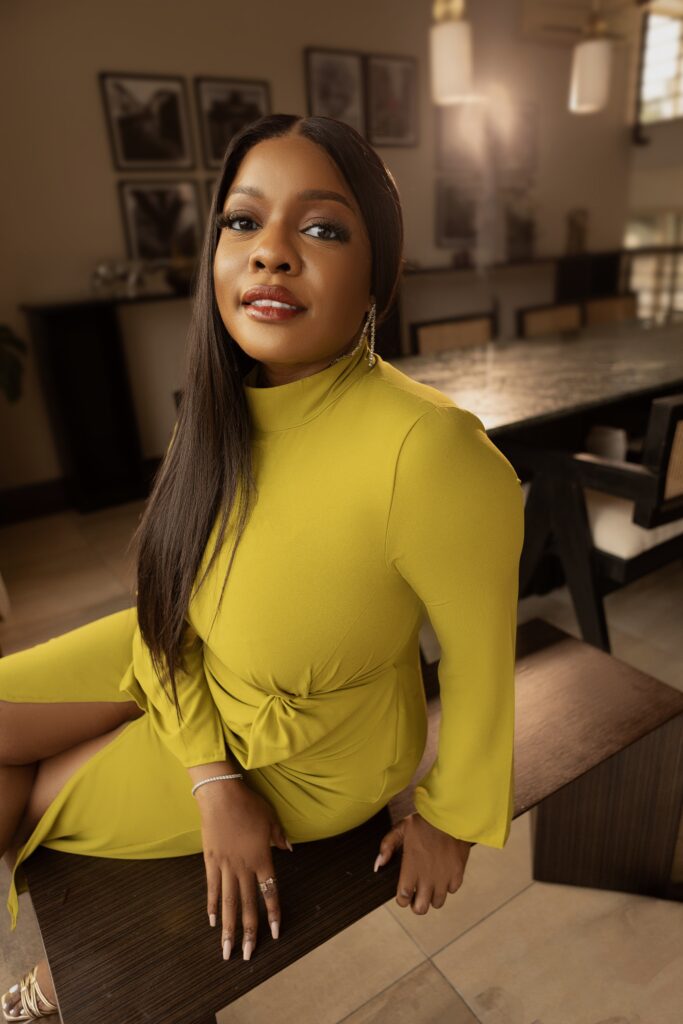
How do you ensure the series remains both entertaining and educational for viewers?
By using storytelling to delve into topics that people are genuinely interested in and proffer possible solutions—for example, the cost of our dreams vs. the reality of our expenses.
How do you define success, and has that definition changed over the years?
I measure success by my ability to smash the goals I’ve set for myself and the impact my work has had on millions of people.
What keeps you motivated to continue breaking barriers and advocating for financial empowerment in Africa?
My daughter Zikora is my biggest motivation. I want her to see through me, what is possible for women to accomplish in spite of obstacles. Even when I fail, I want her to learn from watching me navigate downturns and win.
If you could give one piece of advice to young African women who want to take control of their finances, what would it be?
Building financial literacy skills is important. Your ability to understand essential financial concepts and make informed decisions about saving, investing and borrowing is especially crucial when you are navigating difficult times. Making smart, effective financial decisions can help you stretch your dollars further.
A lawyer by training, Onah packs over a decade of experience in both editorial and managerial capacities.
Nwachukwu began her career at THISDAY Style before her appointment as Editor of HELLO! NIGERIA, the sole African franchise of the international magazine, HELLO!
Thereafter, she served as Group Editor-in-Chief at TrueTales Publications, publishers of Complete Fashion, HINTS, HELLO! NIGERIA and Beauty Box.
Onah has interviewed among others, Forbes’ richest black woman in the world, Folorunso Alakija, seven-time grand slam tennis champion, Roger Federer, singer Miley Cyrus, Ex Governor of Akwa Ibom State, Godswill Akpabio while coordinating interviews with Nigerian football legend, Jayjay Okocha, and many more.
In the past, she organised a few publicity projects for the Italian Consulate, Lagos, Nigeria under one time Consul General, Stefano De Leo. Some other brands under her portfolio during her time as a Publicity Consultant include international brands in Nigeria such as Grey Goose, Martini, Escudo Rojo, Chivas, Martell Absolut Elix, and Absolut Vodka.
Onah currently works as the Editor of TheWill DOWNTOWN.



